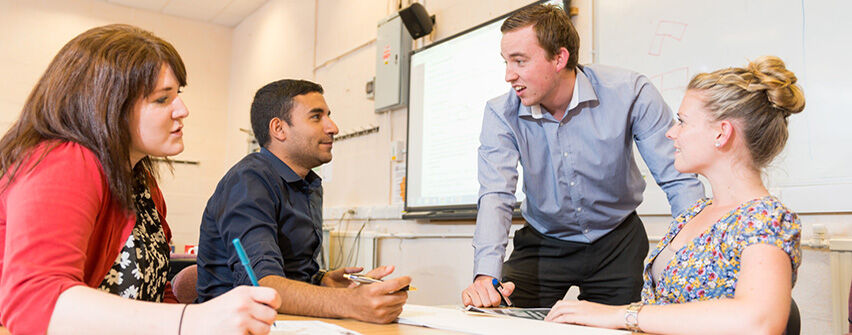We are living and learning in a time of global crisis, and we need to understand the realities and combine urgency with radical optimism in order to create something better. Education can equip us to face the crisis and reimagine the world without reverting to the practices which caused the crisis. This blog (written in a personal capacity) advocates an educational response to crisis based on social justice and sustainability, equality, democracy and solidarity and reconceiving the curriculum, structure and practice of education.
The vocabulary and grammar of crisis
We are living through a global crisis which threatens our very survival. The climate emergency, the Covid pandemic, unsustainable production and consumption, the continuing transfer of wealth towards the richest with its associated injustices; all these can be viewed as elements of a single systemic crisis with inequality as both cause and effect.
Finding a vocabulary and grammar to name and frame this crisis is a political act. When W. E. B. DuBois founded ‘The Crisis’ in 1910, he helped create a language to describe black people’s experience of racism and to articulate demands for race equality. Over a century later, the way we talk about systemic racism today is built on that important work.
In ‘Teaching to Transgress’, bell hooks describes how we turn words into counter-hegemonic speech, liberating ourselves in language. We need to name our current system of economic and social relations as the cause of crisis, analyse its effects and connect our own experience to the global, systemic crisis. We need to ask who controls the narrative and sets the terms of engagement; will crisis be an opportunity to consolidate existing power structures or to challenge systemic inequalities and broaden the scope of democracy and liberation?
Living in crisis can feel disempowering and we need to find ways to face things together, rather than retreating into our shells. We must embrace fear as well as hope. Fear does not have to be demobilising; it can sharpen and clarify our determination to act. What we need is not so much individual resilience but the collective social resilience of the learning community; informed, organised and determined - a resilience of solidarity.
We are not the first to face existential threats; we can learn from history. People have known enslavement, expropriation, persecution, exploitation, violent conflict and environmental disaster, and they have shown us many ways to resist and fight back. We are not powerless and our efforts are not futile. To read the past is to be equipped to make change and to be hopeful about the possibility of change.
The geometry and algebra of recovery
Our existing social political and economic relations are no longer fit for purpose but better ones have yet to be established. Our world needs new structures and a new geometry. But it can be difficult to imagine anything other than what we have and this can demobilise us and stifle the production of genuine alternatives.
We need a justice-led approach to recovery which flows from a shared analysis of the crisis and some consensus about the necessary direction of travel. Once we have the big picture, its overlapping forms can be broken down and we can start to re-draw the map. In Ruth Levitas’s model of utopian thinking, we first draw on our ‘utopian imaginary’ and then open up the possibility of ‘prefigurative practices’ trying out better ways of being or doing.
We are simultaneously ‘recovering from’ and ‘living in’ crisis. Progress depends on a complex set of dynamic relationships, dependencies and equations. The solutions to these equations need to show the point when the levels of atmospheric greenhouse gases start to fall, when there are no longer any Covid-related deaths anywhere in the world, when no human being dies in poverty and when class, race, economic and gender disparities become statistically insignificant.
It is perfectly possible to reverse the excessive accumulation of wealth and power, reliance on unsustainable systems or the market takeover of public services. In a healthier, more egalitarian society, ‘disadvantage’, ‘levelling up’ and ‘social mobility’ will be replaced by new preoccupations.
The calculus of education: curriculum, practice and structure
Any coherent response to crisis must have an educational dimension. But we cannot assume that everything done in education’s name is positive and emancipatory. We know that education can create and reinforce inequalities, as well as opportunities for human flourishing. The sorting, selecting and segregating role of the English system, its social hierarchies and its market-competitive aspects, already drive inequality. More of the same will simply widen the gap.
Crisis impacts differentially and magnifies class, ethnicity, wealth, disability and geographical inequalities. The solutions advocated so far fail to recognise the experience of marginalised groups and the inequality gradients of these impacts. Growing inequalities cannot be overcome with a bit of ‘catching up’ of ‘lost learning’ and we cannot simply give students back their ‘lost’ time and expect to cancel out years of systemic reproduction of social inequalities.
We need to make crisis our teacher, understand its reality and its dynamic. We need to challenge the drivers of inequality: capitalism, class privilege, white privilege, male privilege and the labelling, sorting, ranking, selecting, rationing and segregating which take place at every stage of the education experience.
Terry Wrigley describes how education’s dominant tropes reproduce the current order in ‘Schools of Hope’. These include the idea that students can ‘win’ the performance race regardless of systemic inequalities, that knowledge can be banked and accumulated, that learning is divorced from use-value, experience or meaning-making and that teachers are links in a chain of production whose priorities are determined elsewhere. This maps closely to ideas of human capital and the marketisation and commodification of everything that we value.
Crisis requires a new approach to deciding what knowledge and skills we value and what kind of curriculum we want. A curriculum for social justice would look very different to what is currently on offer. It would evolve organically and be co-constructed with students. Values, care and solidarity need to be at the heart of the curriculum, we also need to teach about risk, complexity and uncertainty and nurture hope and the capacity for collective action.
Such a curriculum could aim to develop critical literacies. ‘Literacy’ including both knowledge and its application and ‘critical’ to survival as well as to developing criticality. Essential critical literacies might include: economic literacy, health literacy, political literacy, scientific & technological literacy, global cultural literacy, emotional literacy and global/planetary literacy.
We should aspire to the progressive, holistic, engaged pedagogy which bell hooks advocates. This sees the classroom as a radical space of possibility where we can rethink and create new visions and go beyond boundaries.
The world is complex, difficult and unpredictable but it is also full of opportunities for flourishing and fulfilment. Education should be a statement of confidence in the future and an investment in that future. We are educating lifelong workers, citizens, carers and learners who need to understand the world as it is, while also acquiring the tools to make it what it could be. We know that rapid, radical action is possible, and that massive resources and ingenuity can be mobilised when deemed necessary. Such a mobilisation needs to address causes rather than merely symptoms.
Education can contribute to a social-justice recovery, but not in our current system. Our incoherent patchwork of markets and hierarchies needs to be reconceived. It is time for education in England to make the shift from a market to a universal, coherent, lifelong system capable of meeting everyone’s needs. We should be describing how a National Education Service for England could bring together public sector education provision and put it at the service of all citizens.
References
hooks, bell (1994) Teaching to Transgress. Routledge
Levitas, Ruth (2013) Utopia as Method: The Imaginary Reconstitution of Society. London: Palgrave Macmillan
Playfair, Eddie (2018) The Promise of a National Education Service, in FORUM 60 (2), p.159-169.
Playfair, Eddie (2022) Education and Socially Just Recovery, in FORUM 64 (1), p.66-75
Wrigley, Terry (2003) Schools of Hope, Trentham Books.

